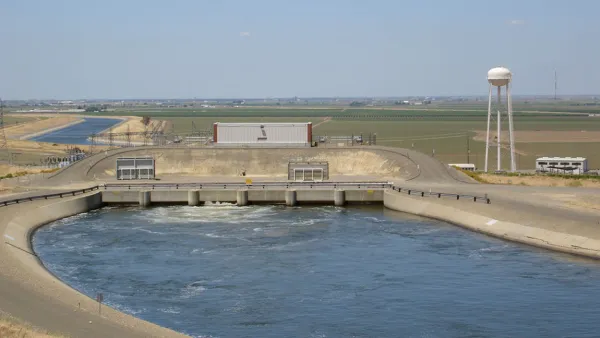California's landmark climate legislation, AB 32, ends in five years; i.e., the target year for emissions reduction is 2020, after which there will be no comparable legislation targeting a future year. SB 32 sets emission reduction goals for 2050.
"The principal author of [the 2006 climate legislation, AB 32], Sen. Fran Pavley, D-Agoura Hills, has introduced a new bill, SB 32, requiring greenhouse gases to be cut to 80 percent below the 1990 levels by 2050," writes John Howard, editor of Capitol Weekly. "The plan would come under the jurisdiction of the [California] Air Resources Board [CARB]."
California will have met the goals of AB 32 if by 2020 emissions are no greater than 1990 levels. Setting the target at 80 percent below 1990 will clearly be a tough row to hoe, "all but certain to draw national attention," writes Howard. It would "authorize state air quality regulators to establish interim benchmarks in 2030 and 2040 to make sure the reductions are actually taking place."
"The lack of post-2020 certainties has been cited as a restraining factor on investments in several areas of the [cap-and-trade] program, such as speculative participation by major financial institutions, and offset project activity for which returns are cast over a long-term horizon," according to CaliforniaCarbon.
Asked if Gov. Jerry Brown has taken a position on the bill, his spokesman stated, “While we generally do not comment on pending legislation, we continue to support strong, sustained action on climate change."
The bill's target is the same as 2005 Executive Order [S-3-05] issued by then-Governor Schwarzenegger who also signed AB 32. That executive order was also referenced in a successful lawsuit on the environmental impact report (EIR) on the sustainable communities strategy of the San Diego Association of Governments' (SANDAG), a requirement under SB 375.
Addendum:
- Regarding AB 32, Howard notes that "(t)he final law carried the name of then-Assembly Speaker Fabian Núñez, although Pavley was its original author.
- SB 1125, detailed by Planetizen in a February 2014 post, "Successor Bill to California's Landmark Climate Change Legislation Introduced," was not approved by the State Legislature.
FULL STORY: Major new cuts eyed for greenhouse gases

Analysis: Cybertruck Fatality Rate Far Exceeds That of Ford Pinto
The Tesla Cybertruck was recalled seven times last year.

National Parks Layoffs Will Cause Communities to Lose Billions
Thousands of essential park workers were laid off this week, just before the busy spring break season.

Retro-silient?: America’s First “Eco-burb,” The Woodlands Turns 50
A master-planned community north of Houston offers lessons on green infrastructure and resilient design, but falls short of its founder’s lofty affordability and walkability goals.

Test News Post 1
This is a summary

Analysis: Cybertruck Fatality Rate Far Exceeds That of Ford Pinto
The Tesla Cybertruck was recalled seven times last year.

Test News Headline 46
Test for the image on the front page.
Urban Design for Planners 1: Software Tools
This six-course series explores essential urban design concepts using open source software and equips planners with the tools they need to participate fully in the urban design process.
Planning for Universal Design
Learn the tools for implementing Universal Design in planning regulations.
EMC Planning Group, Inc.
Planetizen
Planetizen
Mpact (formerly Rail~Volution)
Great Falls Development Authority, Inc.
HUDs Office of Policy Development and Research
NYU Wagner Graduate School of Public Service



























